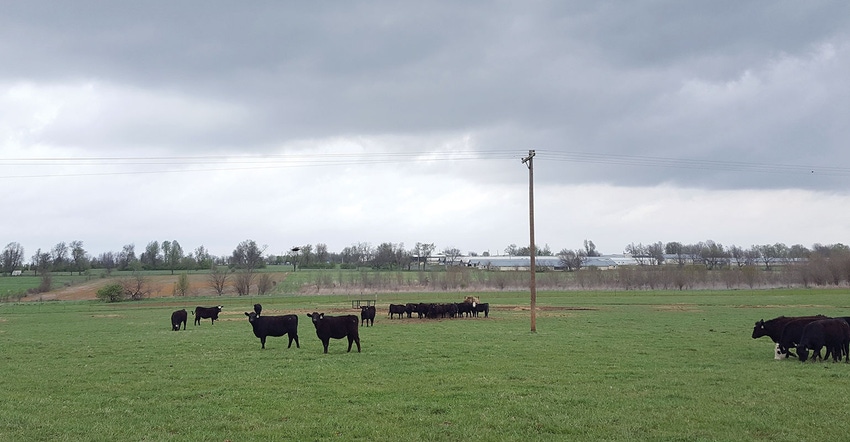
Spring rains are bring relief from a dry winter and the right management strategy can help landowners take advantage of rainwater on their pastures.
Dirk Philipp, associate professor of animal science and forage researcher for the University of Arkansas System Division of Agriculture, said a thoughtful pasture management scheme can prolong the time that grass can take up water from the soil.
Plants take up water mostly by transpiration — moving up from the roots, through the plant and evaporating from the leaves, Philipp said. It is used mostly for cooling and little is used for generating sugar compounds for food.
“Plants thrive when soil water is readily available without creating stress from drought or flooding,” Philipp said. “Farmers have no control over the amount of rain their land gets, but other factors can be influenced to take advantage of what you get.”
First, he said, evaluate how rainwater interacts with the landscape:
Observe where water collects — soil moisture is retained differently depending on soil.
Think about what grass species should be planted on hillsides or at the bottom of hills.
Consider creating buffer strips between fields that can slow rainwater runoff and encourage infiltration into the soil.
Because grassland agriculture largely uses perennial species, Philipp said, there are several good opportunities to maximize on-farm water use:
Choose grass varieties that make the most efficient use of water.
To make the most of summer rains on annual grasses, choose C4 plants like pearl millet or sorghum-sudangrass.
Maintain performance of expensive-to-establish forages — novel endophyte fescue, sprigged bermudagrass — with proper fertilization and weed control.
Test soil fertility.
Keep growth lush and in vegetative state as much as possible
Philipp said proper animal management can also help maintain healthy, productive pastures:
Make sure grazing animals can efficiently use available forage with limited resources, including water.
Keep animals healthy at all times to ensure their metabolic efficiency.
Optimize stocking rates and grazing methods to promote healthy forage and maximize beef output per unit of land.
About the Author(s)
You May Also Like






